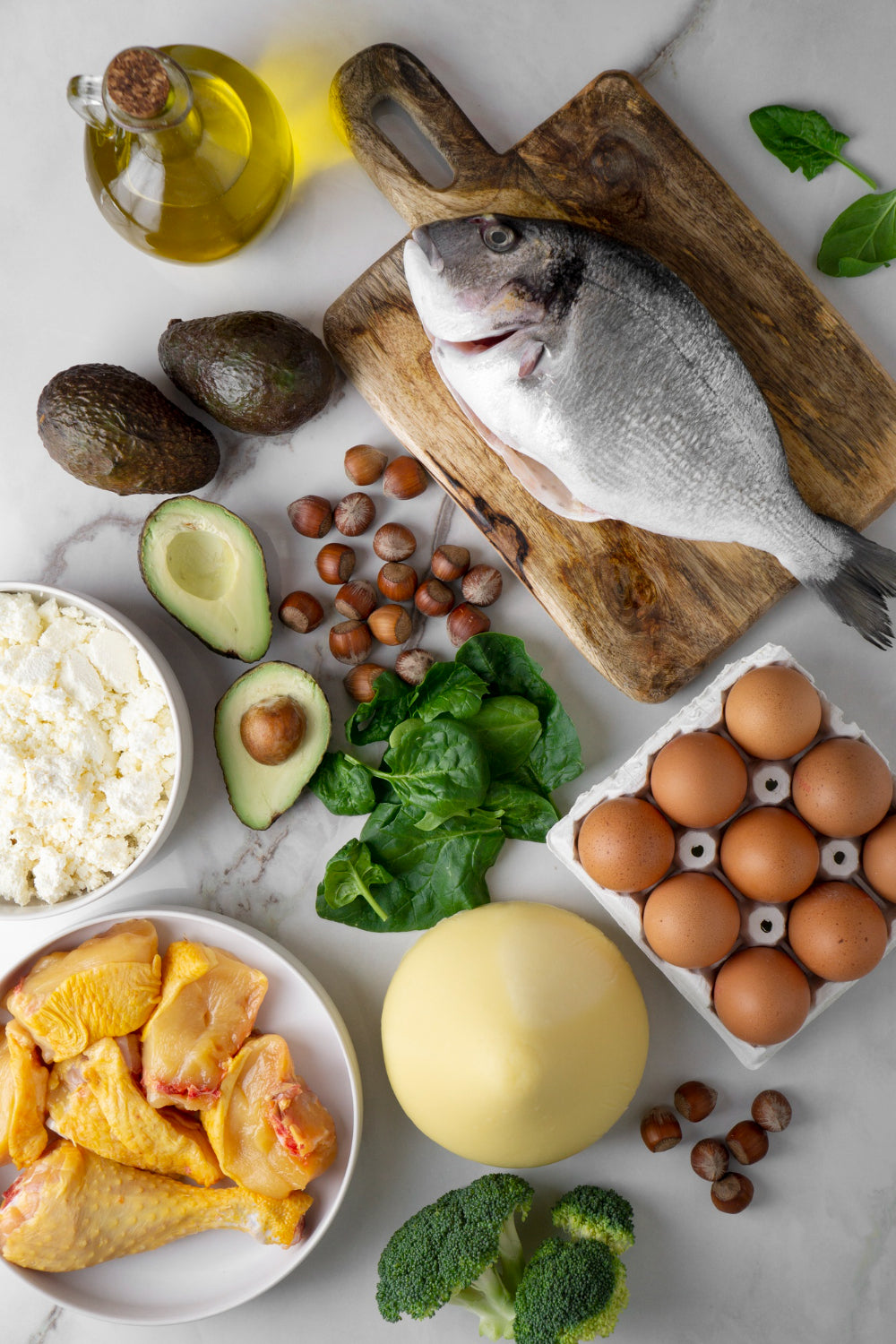Running, cycling, swimming laps, or lifting weights isn’t the end of the challenge. Knowing what to eat after your workout can play a pivotal role in helping your body refuel, rehydrate, and recover from exercise, as well as helping your muscles rebuild. Protein is a fundamental macronutrient for athletes aiming to maximize their performance and recovery. In this comprehensive guide, we’ll explore the significance of proteins, their benefits for workouts, and the optimal amount of protein athletes need post-workouts. We will focus on the best types of proteins for recovery and how The Athlete Guild can provide personalized support in achieving your nutritional goals.
What is protein?
Amino acids are the building blocks of proteins. They make up muscle tissues and play an important role in various physiological functions within the body. It is essential for repairing and rebuilding muscle fibers that undergo stress during physical activity. It is a cornerstone of athletic nutrition. The primary role of proteins is to serve as building blocks for cells, tissues, and organs. They are crucial for the growth, repair, and maintenance of body structures, including muscles, bones, skin, and hair. Understanding the significance of protein intake after a workout is crucial for athletes aiming to optimize their training results and enhance their recovery process.
Benefits of protein for workouts:
Proteins are essential for repairing and rebuilding muscle tissues that break during intense workouts. Adequate protein intake supports muscle growth, helping athletes adapt to training demands and become stronger with time. Consuming protein after a workout helps accelerate recovery by replenishing glycogen stores and reducing muscle soreness. It enables athletes to recover faster between workouts and maintain consistency in their training regimen. Consumption of proteins supports the development of lean muscle mass, which is crucial for improving strength and power output during exercise.
By supplying the body with the necessary building blocks for muscle growth, protein helps athletes enhance their athletic performance and reach their full potential. Protein is highly satiating, meaning it helps to promote feelings of fullness and reduce appetite. Incorporating protein-rich foods into post-workout meals or snacks can help athletes control their calorie intake, maintain a healthy body composition, and support their weight management goals. Intense exercise can temporarily suppress the immune system, making athletes more susceptible to illness.
How much protein do athletes need after a workout?
After a strenuous workout, the muscles undergo stress and damage, especially involving resistance training or endurance exercise. Consuming protein after exercise helps to repair and rebuild muscles. It leads to muscle growth and adaptation over time. The recommended amount of protein for athletes after a workout is typically 20 to 30 grams. Research shows that consuming protein within this range maximizes muscle protein synthesis.
It is important to note that individual protein demand can vary depending on factors like body weight, muscle mass, exercise intensity, and training goals. Some athletes may require more protein to support their muscle repair and growth. Others may need fewer proteins. Pairing protein with carbohydrates after exercise can enhance recovery by replenishing glycogen stores and promoting muscle protein synthesis. Protein-rich foods you can consume post-workout include lean meats, poultry, fish, eggs, dairy products, tofu, legumes, and protein shakes. Athletes should experiment to find the protein intake that best supports their performance and recovery goals.
What type of protein is best for the workout?
Several protein sources are available, each with unique characteristics and benefits for post-workout recovery.
Eggs paired with whole-grain toast make for a nutritious breakfast choice. Whether enjoyed hard-boiled, scrambled, poached, or in a vegetable omelet, eggs offer a substantial protein boost, with an average of nearly 11 grams per large egg. Whole-grain toast provides essential, high-quality carbohydrates.
A refreshing smoothie blended with whey protein powder, coconut water, fruits, and vegetables offers a replenishing option post-workout. The antioxidants in fruits and vegetables help shield cells from exercise-induced damage, while the protein aids in muscle repair. A 2020 study published in Nutrients highlights whey protein's role in significantly reducing post-exercise blood levels of biomarkers associated with muscle damage following strength training.
For a nutritious snack, consider dried fruit and nuts accompanied by tart cherry juice. This combination delivers a balance of carbohydrates, protein, and healthy fats. Tart cherry juice, known for its phytochemicals with antioxidant and anti-inflammatory properties, has been shown to enhance the recovery of muscular strength after intense strength-training exercises.
Another satisfying option is yogurt paired with berries and a sprinkle of granola. Yogurt, rich in protein, combined with the carbohydrates and antioxidants found in berries, helps replenish glycogen stores and supports muscle recovery. Granola provides a delightful crunch and extra flavor to the mix.
How Athlete Guild Can Help
At the Athlete Guild, we understand the importance of post-workout nutrition in optimizing athletic performance. Our team of experienced nutritionists and coaches can develop personalized nutrition plans tailored to your needs, goals, and dietary preferences. We provide expert guidance on incorporating the right balance of protein sources into your diet to support muscle recovery, enhance performance, and achieve your athletic aspirations. With our comprehensive support and resources, you can fuel your success and take your performance to new heights.
